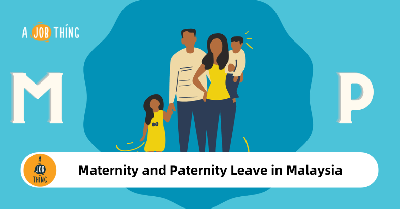
Study Says 82% Of Workers Report Working Environment Lacks Fairness
Create Job Description Using AI
Write appealing job descriptions for any job opening to attract the most qualifield and suitable candidates. FOR FREE.
try now
According to a study by Gartner, Inc., only 18% of workers said they work in a high fairness environment and have an employee experience characterised as fair.
Even most HR leaders feel the same. Just 22% characterised their workplace as having a high degree of fairness.
Gartner defined a high fairness environment as a workplace where workers perceive that their managers and organisation treat them fairly. The Gartner 2021 ReimagineHR Employee Survey research studied 3,500 workers in the third quarter of 2021. The survey found that employees who work in a high fairness environment perform 26% higher than those who don't and are 27% less likely to resign.
Gartner HR practice's chief of research, Brian Kropp, said that creating a fairer employee experience will be the most crucial initiative for HR executives in 2022. He said organisations must go beyond policies and develop philosophies to achieve a fairer employee experience.
Four criteria that help workers feel fairness
According to Kropp, there are four areas that employers can create strategies around to enhance employee perceptions of fairness at the workplace:
1. Being informed
Based on the earlier survey, only 33% of companies practice true information transparency. However, almost 70% of workers said they would take one job offer over another based on the companies' transparency practices.
Gartner's study revealed that organisations disseminate information unevenly to their staff, including recruiting and compensation.
2. Feeling supported
When workers feel supported at work, they are more likely to indicate that they work in a high fairness environment. Companies have tried to support workers by investing in wellbeing programmes.
Another survey by Gartner found that 3 out of 5 HR leaders added or expanded wellbeing programmes in response to the Covid-19 pandemic. Yet, even with these investments, many workers still don't feel like they are getting the support they need and deserve.
3. Feeling considered
Gartner's survey showed that just 18% of qualified workers are considered for the next opportunity when it emerges at their company.
Most companies have created referral programmes that provide access to opportunities for qualified external candidates based on a current worker's referral. However, they do not do the same for internal candidates.
Instead, companies usually rely on managers, who are asked to consider more qualified candidates, or workers, who are encouraged to take the initiative to enhance their profile and build their brand.
4. Being acknowledged
Accurate evaluation and recognition of employees enhance employees' perception of fairness. However, Gartner's study found that just 24% of employees feel acknowledged for their work.
Managers are usually called on to create the feeling of acknowledgement. Yet, the study said that managers tend to favour on-site workers over remote workers in a hybrid work environment.
Based on Gartner's November 2020 survey of almost 3,000 managers, 64% said on-site workers are higher performers, while 75% think on-site workers are more likely to get promoted.
.jpg)
One of the biggest challenges companies face today is to maintain fairness at the workplace.
Moving forward
Organisations can increase their workers' feeling of fairness by addressing the four criteria above in the following methods:
-
Dramatically increase the amount of information disseminated to all workers and candidates, and ensure the information employees receive is actionable by guiding them on how to use the information.
-
Expand support programmes to all workers. Frame the support as an effort to build a more successful organisation with an enhanced work environment and employee experience for everyone. Organisations must help workers understand why different personnel are getting different types of support.
-
Use peer networks to offer equal access to opportunities between those outside the company and those inside the company.
-
Make use of technology to acknowledge the workers with the most significant contributions. It includes ensuring workers are comfortable and consulted with the privacy implications of these technologies and helping workers understand what behaviour changes will improve their performance.
According to Kropp, organisations that use strategies to address these four criteria can significantly improve the number of workers who feel they have a fair experience at work, from fewer than 1 in 5 workers to more than 4 in 5 workers.
Source: Gartner
Articles that may interest you
Employer’s Guide to Conduct COVID-19 Risk Assessment at Workplace
Companies Must Lodge Statutory Documents to SSM Before Dec 31
Do Malaysian Labour Laws Recognise Gig Workers as ‘Employees'?





